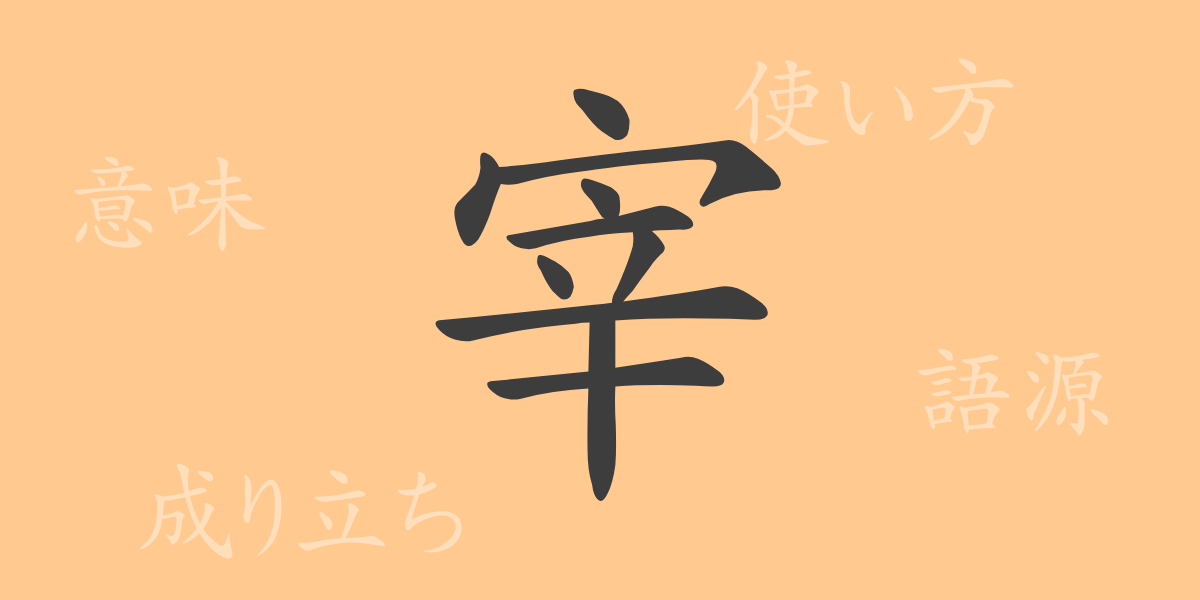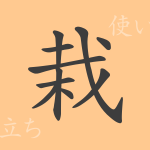There are numerous kanji characters in the Japanese language, each with its unique history and meaning. “宰” (sai) is one such character, included in the list of common-use kanji in Japan. However, compared to many other kanji, its usage is more limited, so there may be fewer opportunities to learn deeply about its origins, meanings, and usage. In this article, let’s delve a little deeper into the world of “宰” (sai) and explore its charm.
Etymology of 宰 (sai)
Tracing the origins of the kanji “宰” (sai) leads us back to ancient China. Originally, “宰” referred to an official who presided over sacrificial ceremonies. Therefore, it has been used since ancient times to symbolize power and control. As a pictograph, it is based on the shape of a person holding a knife, representing someone who presides over sacrificial rituals.
Meanings and Usages of 宰 (sai)
In modern Japanese, the meaning of “宰” (sai) is mainly related to concepts such as “presiding,” “governing,” and “managing.” It is often used in political contexts or to refer to someone in a position of authority. Its usage is most commonly seen as part of compound words, and it is rarely used alone.
Reading, Stroke Count, and Radical of 宰 (sai)
To correctly understand “宰” (sai), it is important to know its readings and structure.
- Reading: In the on’yomi reading, it is read as “サイ” (sai), and it has no kun’yomi reading.
- Stroke count: The total stroke count for “宰” (sai) is 10.
- Radical: The radical is 宀 (ukanmuri, meaning roof).
Idioms, Phrases, and Proverbs Using 宰 (sai) and Their Meanings
There are not many idioms, phrases, and proverbs that include “宰” (sai), but each carries a deep meaning. For example, “宰相” (saishō) refers to a person in a significant political decision-making position in the country, and “宰領” (sairyō) refers to a person governing a certain territory. These compound words are often used to symbolize positions of power and management.
Conclusion on 宰 (sai)
Through this article, you can see that the kanji “宰” (sai) has a unique history and meaning inherited from ancient times. Although it may not be a kanji commonly seen in daily life, it embodies the culture and history that breathes within Japanese words. When you encounter it in contexts related to politics or governance, remember the deep meaning behind it.

























